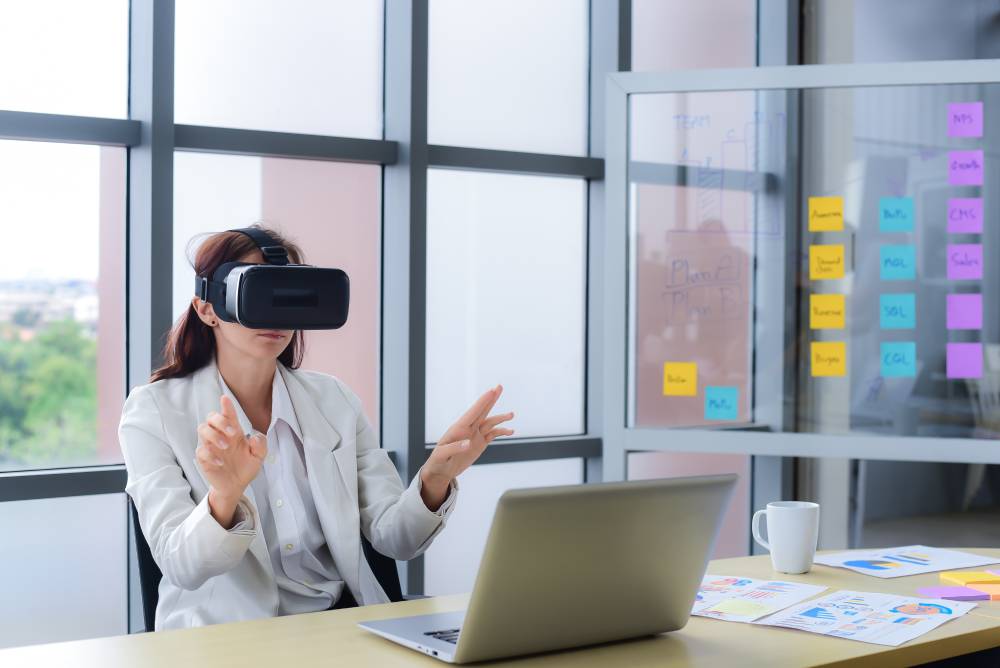The metaverse and its future role in the workplace
March 28, 2022
Last October when Facebook announced its name change to Meta, Mark Zuckerberg said it was because of its meaning in Greek – “beyond”. However, in reality, a huge influence was its decision to begin focusing even more on its planned investment in the ‘metaverse’. Ever since, interest in the area has skyrocketed, with discussions centring around how useful the metaverse could really be.
Game-changer…
Nicola Morini Bianzino, Global Chief Technology Officer at EY, wrote last month that the metaverse has the potential to transform businesses’ entire operating models, from creating digital twins of factories to optimise operations, to the employee onboarding process, where interviews and training could take place. Lenovo’s Ken Wong agrees, stating that “[the] metaverse opens a world of possibilities for businesses”.
A number of companies are already looking to define what the metaverse will look like for businesses. UK-based PixelMax produced a white paper last November in which they outlined “Your company will not have a split workforce, one foot in remote and one foot in the office; everyone will be firmly planted, both feet in the metaverse.”
John Egan, Chief Executive of L’Atelier BNP Paribas sees the metaverse as “evolutionary, not revolutionary”. Writing in Forbes, Gary Fowler expands on this. He feels that the pandemic has been a key driver behind the push to explore the metaverse, with the shift to remote work and collaboration has opening both employers’ and employees’ eyes to new opportunities for work.
…or ethical minefield?
Despite the excitement shown by many, concern has also been expressed around the metaverse. Nicola Morini Bianzino, alongside his predictions for the metaverse, questions whether regulators are ready for the challenges the metaverse presents, in particular around employee data and privacy. There are also serious questions around wider employment law, such as how to deal with harassment in the metaverse. This was explored by the Financial Times last month, addressing questions such as:
- What counts as harassment in the metaverse?
- Can avatars be discriminated against
- Will national legislation protect employees or does the metaverse require a new rule book?
There is also scepticism around the benefits the metaverse claims to have for employees. Iain Fisher of research and advisory firm ISG doesn’t feel the metaverse’s potential to solve the social problems thrown up by hybrid working is sound, arguing “I don’t think this solves the problem – it just moves it elsewhere.” The Guardian’s technology writer Keza Macdonald also questions the metaverse’s impact on the human side of working, arguing that we need human interaction and that people “do not want [technology] to replace that fundamentally.”

